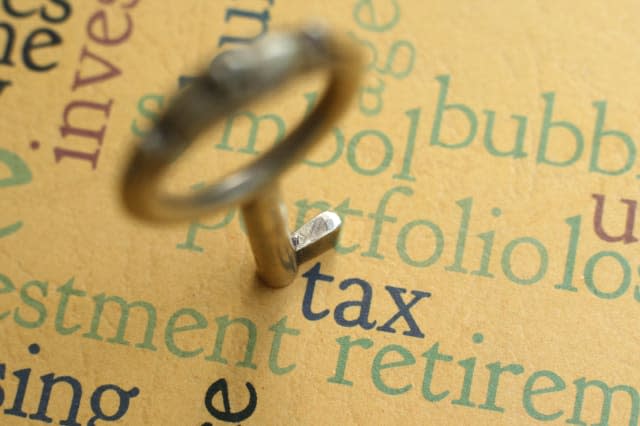New pension rules: how to avoid a huge tax bill

Retirees using the pension freedoms to strip their pension pots are at 'significant risk' of a large tax bill but it can all be avoided with some clever planning.
Pension experts have warned retirees against raiding their defined contribution (DC) pension post-April when new rules allowing those aged 55 and over to take money from their pension as a cash lump sum come into force.
However, those who are keen to get their hands on their money may not fully understand the tax implications, a survey by think-tank the International Longevity Centre UK (ILC-UK) has found.
Instantly calculate your pension income options
The problem lies in a lack of understanding of marginal tax rates. Only 22% of those with a DC pension pot surveyed said they understood the term 'marginal tax rate' and 43% had no understanding at all.
Marginal tax rates are the rates of tax paid on income, such as wages and money taken from a pension. While 25% of a pension pot can be taken tax free, commonly known as the tax-free lump sum but technically called the 'pension commencement lump sum', the rest of the money is taxed like income tax.
%VIRTUAL-ArticleSidebar-pensions%
Everyone has an annual personal allowance, which will be £10,600 in the 2015/16 tax year, on which they pay no income tax.
So retirees can take their 25% tax-free lump sum and another £10,600 without incurring an income tax bill, providing they are not receiving income from elsewhere.
Any income taken from a pension, or elsewhere, that is greater than £10,600 is subject to income tax, or taxed at marginal rates. A 20% income tax charge will be levied on pension withdrawals up to £31,785, minus the personal allowance. A further 40% tax will be levied between £31,785 and £150,000.
Maggie Craig of the City regulator, the Financial Conduct Authority (FCA), said there were concerns that retirees would access their pension cash without realising the tax consequences.
'There are dangers in people taking [their pension] cash, [such as] running out of money and paying to much tax,' she said. 'People do not understand the tax position.'
Research by insurer MGM Advantage has warned around 60,000 people could be pushed into the higher rate tax bracket by accessing their pension.
A person aged 55 or over who is still working and earning £33,288 – the average wage for a pre-retiree - would only need to take just over £20,000 from their pension in order to find themselves paying 40% income tax.
Avoiding a tax bill
Retirees who want to take cash sums out of the pension can still do so without incurring a large tax bill by taking out smaller lump sums over a number of years.
Unfortunately, the ILC-UK research shows just half of those surveyed understood their tax burden would be reduced by spreading pension withdrawals, and one in 10 people believed withdrawing all their money at once would reduce the tax they pay.
As everyone has an annual allowance of £10,600 each year that means this amount can be withdrawn from the pension each year without being taxed. However, those who are aged over 55 and still working who want to access their pensions should note that any income from employment will count towards the personal allowance, there is not a separate allowance for pension income.
Similarly, the state pension also counts towards the personal allowance, so if you are in receipt of this benefit you will need to work out how much of your personal allowance is left.
In order to ensure a person is accessing their pension pot in the most cost effective way, pension expert Ros Altmann said they should consider the 'three Ts', which stand for tax implications, type of product, and timing.
Altmann said retirees need know 'there are reasons to keep money in a pension...as well as tax implications of taking money out'.
Once the implications are clear, retirees should consider how to take their money, whether they want it as a lump sum or as an income and tailor their products accordingly.
And thirdly, the timing, when Altmann urged retirees to consider whether they need the money now, whether they can carry on working and whether their savings would be of best use down the line.
Instantly calculate your pension income options
Taking advice
For retirees who are unsure of their tax position, the first stop is the guidance guarantee that will be provided by the government's Pension Wise service. This is a free 30 minute guidance service that will be accessed either over-the-phone or face-to-face from April.
The guidance agents will be able to set out the implications of the pension options available to those wanting access to their pension pot, such as buying an annuity, going into drawdown and taking a cash sum.
However, Pension Wise will not be able to give full advice and tell retirees what course of action is best for them.
Altmann said guidance is the equivalent of being given a bus timetable when you ask how to get from A to B 'whereas advice is a chauffer driven limousine, which makes sure you get there with hand holding'.
She urged retirees not to get guidance and advice confused, and for those with complex retirement needs or difficult questions to pay for a financial adviser.
'We have to make it clear that if you get guidance then that is not advice...it is only with advice that you get the answers [to your questions] otherwise you have to find the answers yourself,' said Altmann.
'We will not give people the answers and [we have to] make people have more realistic expectations about what [they] can get for free.'
Read more:
Could new freedoms be the end of pensions?
Billions of pension cash could be trapped next year
Tax-free lump sum: what new freedoms mean




